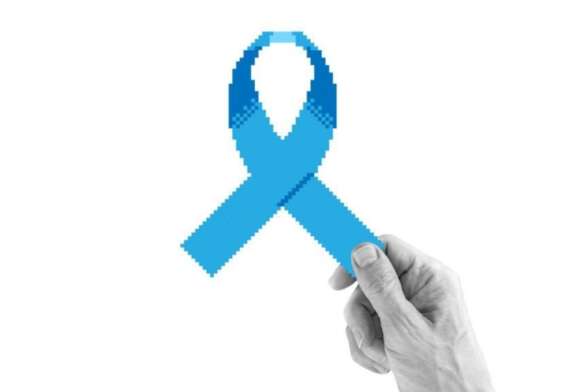
How To Last Longer In Bed: Become a Master of the Bedroom!
Are you struggling to last longer in bed? You’re not alone. Many people experience premature ejaculation or simply feel unsatisfied with their sexual performance. But don’t worry, there are plenty of tips and techniques that can help you improve your sexual health and satisfaction.
At FitGAG, we believe that sexual health is an important aspect of overall wellness. That’s why we’ve put together this comprehensive guide on how to last longer in bed. We’ll cover everything from the causes of premature ejaculation to physical and psychological techniques that can help you improve your sexual performance.
Causes of Premature Ejaculation
Premature ejaculation is a common sexual dysfunction that can lead to feelings of embarrassment and anxiety. It is defined as ejaculation that occurs within one minute of penetration, or before the person wishes it to occur. There are a variety of factors that can contribute to premature ejaculation, including psychological and medical causes. In this section, we will explore the different causes of premature ejaculation in more detail.
Psychological Causes of Premature Ejaculation
Psychological factors are among the most common causes of premature ejaculation. These factors can include anxiety and stress, depression and other mental health conditions, and relationship issues.
Anxiety and Stress
Anxiety and stress can cause premature ejaculation by increasing arousal and making it difficult to relax during sexual activity. This can lead to a cycle of anxiety and anticipation, which can exacerbate the problem.
Depression and Other Mental Health Conditions
Depression and other mental health conditions can also contribute to premature ejaculation. These conditions can lead to decreased libido and difficulty with sexual function.
Relationship Issues
Relationship issues, such as lack of intimacy or communication, can also contribute to premature ejaculation. These issues can create feelings of anxiety or pressure during sexual activity, which can make it difficult to relax and enjoy the experience.
Medical Causes of Premature Ejaculation
In addition to psychological factors, there are also a variety of medical conditions that can contribute to premature ejaculation. These conditions can include hormonal imbalances, inflammation or infection of the prostate or urethra, and neurological disorders.
Hormonal Imbalances
Hormonal imbalances, such as low levels of testosterone, can lead to premature ejaculation. These imbalances can affect sexual function and lead to decreased libido and difficulty with ejaculation.
Inflammation or Infection of the Prostate or Urethra
Inflammation or infection of the prostate or urethra can also contribute to premature ejaculation. These conditions can lead to pain or discomfort during sexual activity, which can make it difficult to relax and enjoy the experience.
Neurological Disorders
Neurological disorders, such as multiple sclerosis or Parkinson’s disease, can also contribute to premature ejaculation. These disorders can affect the nervous system and lead to difficulty with sexual function.
Premature ejaculation is a common sexual dysfunction that can be caused by a variety of factors, including psychological and medical causes. Understanding the different causes of premature ejaculation can help you identify effective treatment options and improve sexual function and satisfaction.
Psychological Techniques for Lasting Longer in Bed
Psychological techniques can be an effective way to improve sexual performance and help you last longer in bed. These techniques focus on managing anxiety, reducing stress, and increasing relaxation during sexual activity. Here are some of the most effective psychological techniques for lasting longer in bed:
Mindfulness and Relaxation Techniques
Mindfulness and relaxation techniques can help you stay present in the moment and reduce anxiety during sexual activity. These techniques include deep breathing exercises, progressive muscle relaxation, meditation and visualization, and sensate focus exercises.
Deep breathing exercises involve taking slow, deep breaths and focusing on the sensations of breathing. Progressive muscle relaxation involves tensing and relaxing different muscle groups in your body to reduce tension and promote relaxation. Meditation and visualization involve focusing your mind on a calming image or idea to reduce anxiety and promote relaxation. Sensate focus exercises involve non-genital touching and massage to increase body awareness and promote relaxation.
Distraction Techniques
Distraction techniques can help you focus on non-sexual thoughts or sensations to delay ejaculation. Some effective distraction techniques include mental arithmetic or other mental exercises, focusing on non-sexual thoughts or sensations, and engaging in conversation with your partner.
Cognitive-behavioral Therapy (CBT)
Cognitive-behavioral therapy is a form of talk therapy that can help you address negative thoughts and feelings related to sexual performance. CBT can also help you develop coping strategies for anxiety and stress, improve communication and intimacy with your partner, and set realistic expectations for sexual activity.
Improving Communication and Intimacy with Your Partner
Improving communication and intimacy with your partner can also help you last longer in bed. This involves talking openly and honestly about your sexual desires and needs, as well as exploring new ways to connect and enjoy sexual activity together.
Psychological techniques can be an effective way to improve sexual performance and help you last longer in bed. These techniques focus on managing anxiety, reducing stress, and increasing relaxation during sexual activity. By practicing these techniques, you can increase your sexual satisfaction and improve your overall well-being.
Physical Techniques for Lasting Longer in Bed
Physical techniques can also be effective in improving sexual performance and helping you last longer in bed. These techniques focus on strengthening the pelvic floor muscles, reducing sensitivity during sexual activity, and improving overall physical health. Here are some of the most effective physical techniques for lasting longer in bed:
Kegel Exercises
Kegel exercises are a type of pelvic floor exercise that can help strengthen the muscles that control ejaculation. These exercises involve contracting and relaxing the pelvic floor muscles, which are the muscles that support the bladder, urethra, and rectum. By strengthening these muscles, you can improve your ability to control ejaculation and delay orgasm.
To perform Kegel exercises, start by identifying your pelvic floor muscles. You can do this by stopping the flow of urine midstream or by tightening the muscles that prevent passing gas. Once you have identified these muscles, contract them for a few seconds, then relax for a few seconds. Repeat this process several times, working up to longer contractions and more repetitions.
Stop-Start Technique
The stop-start technique is a behavioral technique that involves stopping sexual activity when you feel close to ejaculation, then starting again once the urge to ejaculate has passed. This technique can help you become more aware of your body’s responses during sexual activity and learn to control your ejaculation.
To perform the stop-start technique, engage in sexual activity as normal, but stop when you feel close to ejaculation. Take a break from stimulation until the urge to ejaculate has passed, then start again. Repeat this process several times during sexual activity, gradually increasing the amount of time between stopping and starting.
Squeeze Technique
The squeeze technique is another behavioral technique that involves squeezing the base of the penis when you feel close to ejaculation. This technique can help reduce sensitivity and delay ejaculation.
To perform the squeeze technique, engage in sexual activity as normal, but squeeze the base of the penis when you feel close to ejaculation. Hold the squeeze for several seconds, then release and continue with sexual activity. Repeat this process several times during sexual activity.
Desensitizing Sprays and Creams
Desensitizing sprays and creams can be applied to the penis to reduce sensitivity and delay ejaculation. These products contain a mild anesthetic that numbs the penis and prolongs sexual activity.
While desensitizing sprays and creams can be effective in delaying ejaculation, they can also have side effects, such as reduced sensitivity and increased risk of irritation or infection. It’s important to use these products according to the manufacturer’s instructions and talk to your healthcare provider if you experience any side effects.
Physical techniques can be an effective way to improve sexual performance and help you last longer in bed. By strengthening the pelvic floor muscles, reducing sensitivity during sexual activity, and improving overall physical health, you can increase your sexual satisfaction and improve your overall well-being.
Lifestyle Changes for Lasting Longer in Bed
In addition to psychological and physical techniques, lifestyle changes can also have a significant impact on sexual performance and lasting longer in bed. These changes focus on improving overall physical health, reducing stress and anxiety, and avoiding behaviors that can negatively affect sexual function. Here are some of the most effective lifestyle changes for lasting longer in bed:
Exercise and Physical Activity
Regular exercise and physical activity can improve overall physical health and sexual function. Exercise can improve cardiovascular health, reduce stress and anxiety, and improve mood and self-esteem. Some types of exercise that may improve sexual performance include cardiovascular exercise, strength training, and yoga.
Balanced Diet and Proper Nutrition
Eating a balanced diet and getting proper nutrition can also improve overall physical health and sexual function. Certain foods may improve sexual performance by increasing blood flow, boosting testosterone levels, and reducing stress and anxiety. Foods that may improve sexual performance include avocados, nuts and seeds, dark chocolate, and oysters.
Good Sleep Hygiene
Getting good sleep is essential for overall health and well-being, including sexual function. Poor sleep can lead to increased stress and anxiety, reduced energy levels, and decreased libido. Tips for improving sleep hygiene include establishing a regular sleep schedule, avoiding caffeine and alcohol before bed, and creating a relaxing sleep environment.
Stress Management Techniques
Stress and anxiety can have a significant impact on sexual function. Techniques for managing stress include exercise, meditation, deep breathing exercises, and therapy. By managing stress and anxiety, you can improve overall well-being and sexual function.
Quitting Smoking and Moderating Alcohol Intake
Smoking and excessive alcohol consumption can have negative effects on sexual function. Smoking can reduce blood flow to the penis, while excessive alcohol consumption can decrease libido and lead to erectile dysfunction. Quitting smoking and moderating alcohol intake can improve overall physical health and sexual function.
Lifestyle changes can have a significant impact on sexual performance and lasting longer in bed. By improving overall physical health, reducing stress and anxiety, and avoiding behaviors that negatively affect sexual function, you can increase your sexual satisfaction and improve your overall well-being.
Communication and Sexual Health
Effective communication is an essential component of a healthy sexual relationship. Communication can help you express your needs and desires, understand your partner’s needs and desires, and address any concerns or issues that may arise. Here are some tips for improving communication and sexual health:
Talking to Your Partner About Sexual Performance and Satisfaction
Open and honest communication with your partner about sexual performance and satisfaction is essential for a healthy sexual relationship. Talking openly about your desires, concerns, and boundaries can help you establish a deeper connection and increase sexual satisfaction.
Seeking Help From a Healthcare Professional if Necessary
If you are experiencing sexual dysfunction or other issues related to sexual health, it’s important to seek help from a healthcare professional. A healthcare provider can help diagnose and treat underlying medical conditions that may be contributing to the problem, as well as provide guidance on effective treatment options.
Improving Intimacy and Connection
Improving intimacy and connection with your partner can also improve sexual health and satisfaction. This can involve exploring new sexual experiences, practicing emotional intimacy, and engaging in activities that promote bonding and connection.
Communication is an essential component of a healthy sexual relationship. By talking openly with your partner about sexual performance and satisfaction, seeking help from a healthcare professional if necessary, and improving intimacy and connection, you can increase your sexual satisfaction and overall well-being.
FAQs About Lasting Longer in Bed
Let’s take a closer look at some common questions about lasting longer in bed and premature ejaculation. Here are some frequently asked questions and their answers:
Is Premature Ejaculation A Common Problem?
Yes, premature ejaculation is a common problem that affects many men at some point in their lives. It is estimated that between 20% and 30% of men experience premature ejaculation at some point.
Can Certain Foods Or Supplements Help With Lasting Longer In Bed?
While certain foods and supplements may have benefits for sexual health, there is no definitive evidence that they can help with lasting longer in bed. Some foods and supplements may improve overall physical health and sexual function, but it’s important to talk to a healthcare provider before taking any new supplements or making significant dietary changes.
How Long Should Sex Last?
There is no set time for how long sex should last, as it varies from person to person and can depend on a variety of factors, including age, physical health, and sexual activity level. However, the average time for ejaculation during sexual activity is between three and five minutes.
When Should I See A Doctor About Premature Ejaculation?
If premature ejaculation is causing significant distress or affecting your quality of life, it’s important to talk to a healthcare provider. A healthcare provider can help diagnose any underlying medical conditions that may be contributing to the problem, as well as provide guidance on effective treatment options.
Conclusion
There’s no denying it – sexual performance and satisfaction are important for overall well-being. If you’re struggling with premature ejaculation or simply want to last longer in bed, there are a variety of techniques and strategies that can help. From psychological techniques like mindfulness and relaxation, to physical techniques like Kegel exercises and the stop-start technique, to lifestyle changes like exercise and good sleep hygiene, there are many different approaches you can try to improve your sexual function and satisfaction.
At FitGAG, we believe that sexual health is an important component of overall well-being. By prioritizing communication, healthy lifestyle habits, and effective treatment options, you can improve your sexual function and satisfaction and enhance your overall quality of life.
So don’t be shy – talk to your partner, seek help from a healthcare professional if necessary, and explore different techniques and strategies to find what works best for you. With patience, persistence, and a willingness to try new things, you can overcome premature ejaculation and enjoy a healthy and fulfilling sex life.











